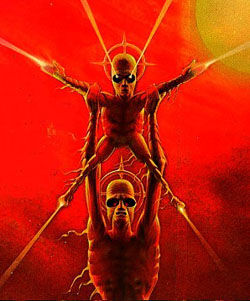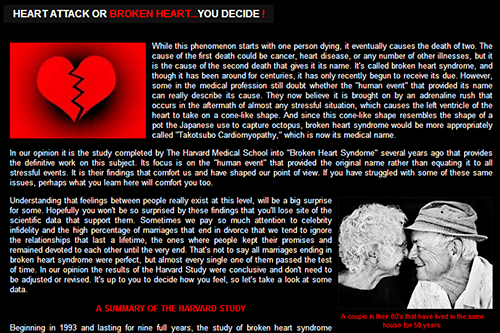LIFE HISTORY THEORY AND YOU!

A recent Queen's University study concluded that increased life expectancy and improvements in health may very well be the cause of marriages and having children taking place later in life. The Canadian study suggests that many of the major decisions we make are influenced by subconscious thoughts related to how long we think we'll live. The study is ongoing...
The short definition of “life history theory,” as it relates to you, is it is a branch of evolutionary theory which predicts behavior based upon peoples ages. It suggests that as people believe they are likely to live longer decisions related to certain milestones such as marriage, having babies and divorce may be delayed in favor of other activities such as education. Likewise how much "time" people believe they have left can affect how willing they are to cooperate with each other, which can influence how well they resolve conflicts. Those who believe they have less time to live may be less likely to divorce because there's limited time to find a new partner, might be another way "life history theory" can help us understand how we make important decisions that affect our lives.
In a broader sense Life History Theory is a fascinating subject you might want to explore in greater depth on your own...it is far too complex to go into in much depth here. It depends upon the principles of evolutionary biology and ecology and it extends beyond people into other areas of science. It's goal is to understand the variation in strategies used to form the traits favored in different environments over time. The key to understanding life history theory is to accept there are "limits" or constraints that determine behavior. In other words decisions are made based upon trade--offs related to recognizing the limited resources available in the environment at that time.
Organisms have a variety of life histories, but under "life history theory" all are shaped by natural selection to produce the largest number of offspring. Pacific Salmon produce thousands of eggs and then die. Human beings produce a few offspring over decades, each requiring different investments in reproduction, growth and the ability to survive. These levels of complexity limit the number of life history characteristics that can be studied at any given time. Currently almost all the focus is related to the age of the first reproductive event, aging and lifespan which gives you some idea of how it relates to life expectancy as we think of it today. All organisms have a life table which is how life expectancy estimates are determined. Tom LeDuc





